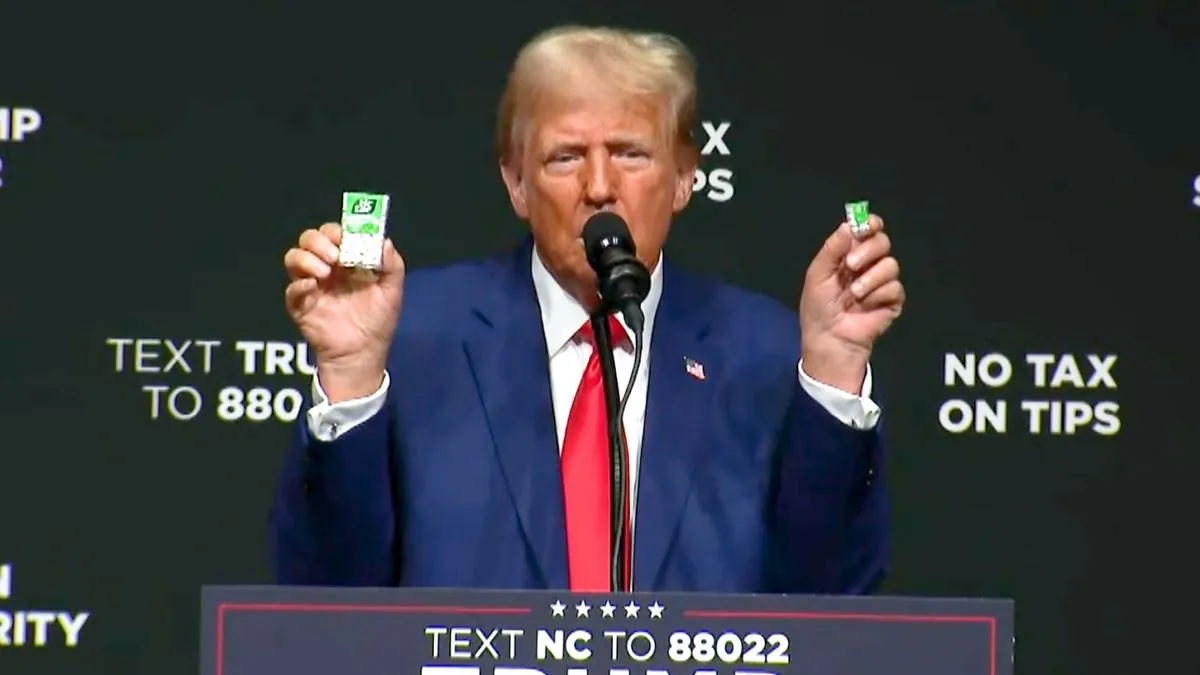Trump Floats Higher Tariffs, Sparking Economic Debate and Harris Criticism
Former President Trump suggests increasing import tariffs to 10-20%, escalating his trade policy. Experts warn of potential economic impacts as Trump criticizes VP Harris's economic plans in North Carolina speech.

In a recent speech in Asheville, North Carolina, Donald Trump proposed an increase in import tariffs, potentially escalating his trade policy. The former president suggested levying tariffs of "10 to 20 percent" on imports to the United States, a significant shift from his previous 10% proposal.
This announcement has sparked debate among economic experts. The Peterson Institute for International Economics, a pro-trade think tank based in Washington, D.C., estimates that a 10% universal tariff, combined with a 60% tariff on China, could cost a typical middle-income household approximately $1,700 annually. Doubling this tariff could substantially increase costs for U.S. consumers.
Erica York, an analyst at the conservative-leaning Tax Foundation, commented on the potential impact:
"It has been 10 percent universal across the board — 20 percent would be a doubling of that, and all analyses have already shown that would be detrimental to the economy."
The proposed tariff increase has raised concerns about global trade relations. The World Trade Organization (WTO), which oversees international trade rules, may face challenges if such policies are implemented. It's worth noting that the U.S. Constitution gives Congress the power to regulate foreign trade, which could lead to potential conflicts between the executive and legislative branches.
Trump's speech, while focused on the economy, also included criticism of Vice President Kamala Harris. He accused her of copying his economic ideas, particularly regarding the elimination of taxes on tips. This comes as Harris prepares to unveil her own economic plan in Raleigh, North Carolina, two days after Trump's speech.
The focus on North Carolina highlights its importance in the upcoming election. With 15 electoral votes, it's a key battleground state. Notably, a Democrat hasn't won North Carolina in a presidential race since 2008. Current polls show Trump leading Harris by three percentage points in the state.

Asheville, where Trump delivered his speech, is the largest city in western North Carolina and part of Buncombe County. Despite the county's Democratic leanings in recent presidential elections, Trump has won all seven surrounding counties twice.
As the election approaches, both parties are investing heavily in North Carolina. Democrats have allocated over $15 million for television ads until Election Day, while Republicans are spending $12 million, according to AdImpact.
The economic debate surrounding Trump's proposed tariffs is likely to continue, with experts weighing the potential impacts on U.S. households, global trade relations, and the overall economy. As the world's largest economy by nominal GDP and the issuer of the primary reserve currency, U.S. trade policies have far-reaching implications for the global economic landscape.


































